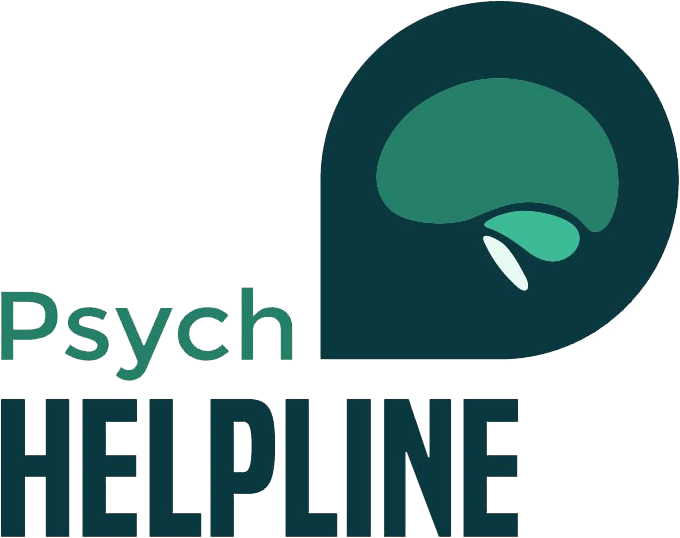Table of Contents
Are you tired of being that one person who’s always standing alone among huge crowds? Are your close to none social skills affecting the way people view you at your workplace? Well, you’re not alone because most of us struggle with social skills. It can be hard being social for some people that have never lived in crowded places or have been sheltered throughout their lives. Some people tend to have a more individualistic mindset meanwhile others struggle with social anxiety. One’s lack of social cues can often be misconstrued as a lack of respect towards another person which can create trouble for them.
The bottom line is, that one’s survival seems too difficult without ample social skills in a society like ours. So, don’t worry if you’re even in your mid-30s or mid-40s, you can master this art at any age and it’s not too late. Let’s start with some easily applicable principles and simple activities you can start with. Trying the activities mentioned down below will help you polish your social skills over time. But first, we must signify what good social skills actually are and to what extent they impact one’s life;
How Does One Define Good Social Skills?
Social skills are the back of any interaction or any conversation you have in any possible setting. To be more precise, social skills are the non-verbal and verbal communication skills one ought to have in order to build proper connections.
A person who has good social skills is always aware of any social cues, remains empathetic, responds in a manner that’s socially acceptable, and remains confident throughout. Having the aforementioned qualities and some others seals one’s status as someone who’s good at socialization or networking. Having good social skills ensures that;
- When in need, someone will always be there to help you. If you’re able to strike great conversations and build bonds with people with the aid of your social skills it’s a high chance that you’ll never return empty-handed whenever you ask for help.
- You’ll most definitely ace any interview you apply for. Most interviewers analyze your communication skills and how you articulate yourself during initial screenings. If you’re someone who clearly understands social cues and is able to respond ideally, you most definitely would get hired.
- You’ll never feel alone. That’s the thing about being nice to others. Your social skills and the way you communicate with others leave a long-lasting impression on your personality and intentions. Everyone would want to keep you close because of your preciseness, well-articulated chatter, and ability to talk thoroughly. Just the act of talking can make a huge change and seal your spot in the hearts of people.
- You’ll never compromise on what you want. Since you know the right way to word things, don’t feel stuck while putting your feelings into words, you’ll always speak your heart out. This is great for all those people that don’t compromise on the boundaries they create between themselves and others.
- People will love working with you. If you’re thorough about what you want or what needs to be done in a workspace, your colleagues or the clients you work for will always favor you. In a workspace people usually want to avoid working with someone who cannot communicate ideally or makes matters complex. A person who has good social skills can converse in a manner that satisfies the opposite party and this can even save everyone’s time.
- You’ll have just the right amount of self-esteem. The idea that you’re a good communicator and well-liked person fuels your self-esteem for the better. This turn keeps you safe from many other mental health anomalies that stem from low self-esteem.
10 Activities That Can Help You Polish Your Social Skills
Fake It Till You Make It
This is a principle one can follow in any area of life because once you dip your feet into something you gradually pick up the essential things. It might be hard getting involved in something that you’re not that great at but you need practice. Get yourself involved in matters that require communicating with others.
Your coy nature might exhaust you after the first two or three interactions. After a while, you start picking up a few things from the conversations you’re having. This will give you more exposure, you’ll be able to analyze the context of any situation in a better manner.
Avoid Cracking Jokes 24/7
Being excessively funny isn’t a sign of having excellent social skills. If someone with great social skills is funny, that’s just another added perk. Some tend to make the mistake of assuming that cracking jokes 24/7 might make them seem like a well-liked person.
They go as far as cracking self-deprecating jokes which have the opposite effect on the person they’re conversing with. So, avoid doing this at all costs, stop yourself in the act, and think about what you’re about to say or how it’ll translate in that context.
Practice Being A Good Listener
Now, if you’re still at the beginning of this journey here’s something that can make matters smoother for you. To keep the conversation going and to leave a good impact on the person in front of you try to be an active listener. It’s simple, all you have to do is ask open-ended questions. Show your participation by adding a few words every now and then. You can try and let them take the lead until you feel like you can add something of value to the debate. It’s a great tactic for when you’re in a situation where you don’t want to talk but you’re obligated to do so.
Avoid Controversial Topics
No matter how great you are at conversing or building connections with others, some topics are always avoidable. One should avoid bringing up issues that could spark an uncomfortable debate. At least for now, when you don’t feel like your social skills are as great, you can try not to indulge yourself in topics that can be hard to perceive, on matters related to sexualities, genders, politics, etc.
People do have varying opinions. Getting into a hot debate no matter how accurate your stance is, would be a difficult thing. You don’t want to seem rude or outright disrespectful, so in order to prevent that for now you shouldn’t indulge in any conversations revolving around controversial topics.
Stay Updated
Do you want to talk to a person you like but just don’t know where to start? It really helps if you’re updated on current issues and trending topics. Take out time to stay updated on the things that are happening around you.
For instance; if you’re trying to seem like a person with good social skills to a person who’s interested in sports you can try and bring up a recent match. That’s a good start, just get them started and add your side of the chatter along the way. Finding a commonality can be a great start because soon you’ll find something else to talk about with them.
Compliments Can Change The Game
No matter how hideous your next-door neighbor’s Halloween arrangement looks, talk about how great it looks. Compliment others even when you don’t want to. Compliments can automatically land you in the good graces of another person no matter which age group they belong to. It’s a sign of great manners and shows your good intentions towards that person.
Jot Things Down If You Can’t Remember
Some people aren’t bad at building connections they’re just too forgetful. Haven’t you been in an official setting where you had something worthwhile to add but just couldn’t remember the name of the person you’re trying to talk to? In certain contexts, it can seem socially inappropriate that you don’t remember the name of a specific thing or person.
No matter how well intended you are, your forgetfulness can come out as disrespectful to the person in front of you. Try keeping a booklet next to you at all times. Note down important names and ideas you intend on discussing the next time you meet them. Your interest in them will only leave a positive image of you in their mind.
Use Your Body Language
Your body language should signify what you’re trying to say. It can reflect your confidence level and show your interest in a conversation. Some people fidget with their hands and talk with others while keeping their attention on another task at hand. Although sometimes these habits are unavoidable, they can give the impression that you’re not interested in talking to someone else.
So while you’re trying to converse, face the person you’re talking to. Stand in an upright position or if you’re sitting, sit upright. Let them know that you’re actively listening to them. This is a social cue that can make that person feel like he’s actually being appreciated and you’re actually willing to build a connection with them. This makes the conversation seem worth the while.
Try And Involve Others In The Conversation
Making others a part of the context isn’t just an empathetic measure it also makes you well-liked in their eyes. For instance; while talking about a recent marketing venture with your boss you can bring up a colleague standing by and appreciate their efforts as well. Involving someone else in the conversation shows that you actually note what’s happening around you and appreciate what that person’s doing. The fact that you tried to highlight a fellow colleague’s efforts in front of higher-ups will also land you in their good graces.
Don’t Put On A Façade
Last but not least, being genuine is very essential. You can try to imitate someone else’s personality but that act will soon fail after a while. If your coworker bob seems to be great at networking you don’t have to follow his entire game plan word for word. Just notice the things that make him seem so distinct and immolate them in your own life. Your distinctness is the one thing that sets you apart from other people. So try to retain and just make a few needed alterations.
Social Skills: 5 Life-changing Tips For Those Who Love Networking
- There’s an abundance of literature that you can get into. There are resources that can guide you on how to be a better listener or how you can adjust your body language according to the context. So, try reading books and articles related to that.
- Practice maintaining eye contact at all costs. Maintaining eye contact with a person you’re engaging with for at least 5 or 6 seconds can leave a deep impression. It shows interest the way no one else does. Additionally, it can also keep them interested in talking to you.
- Invite over your coworkers or the people you’re trying to be friendly with. It’s a small gesture that can create a dramatic change. It can be a small lunch or dinner, or you can try picking a cup of coffee with various groups of people.
- Joining a social skills support group can help you greatly. First and foremost you’ll feel like you’re not alone in your misery considering how there are people struggling with the same issue. Additionally, these groups are designed to make you feel more connected with your social identity. Over time, the activities designed by them will make you less shy and less awkward in social settings.
- Social skills aren’t limited to your way of conversing. How you are physically active in a setting or what you’re wearing in a setting will also drop hints about your social skills. So, wear outfits in accordance with the event you are attending, try to take great care of table manners, etc.
Final Words
It’s a long journey ahead but making even the smallest changes will impact the way people perceive you. Remember there’s no pressure, you’re doing all this for yourself and to feel a bit more comfortable in social scenarios.







